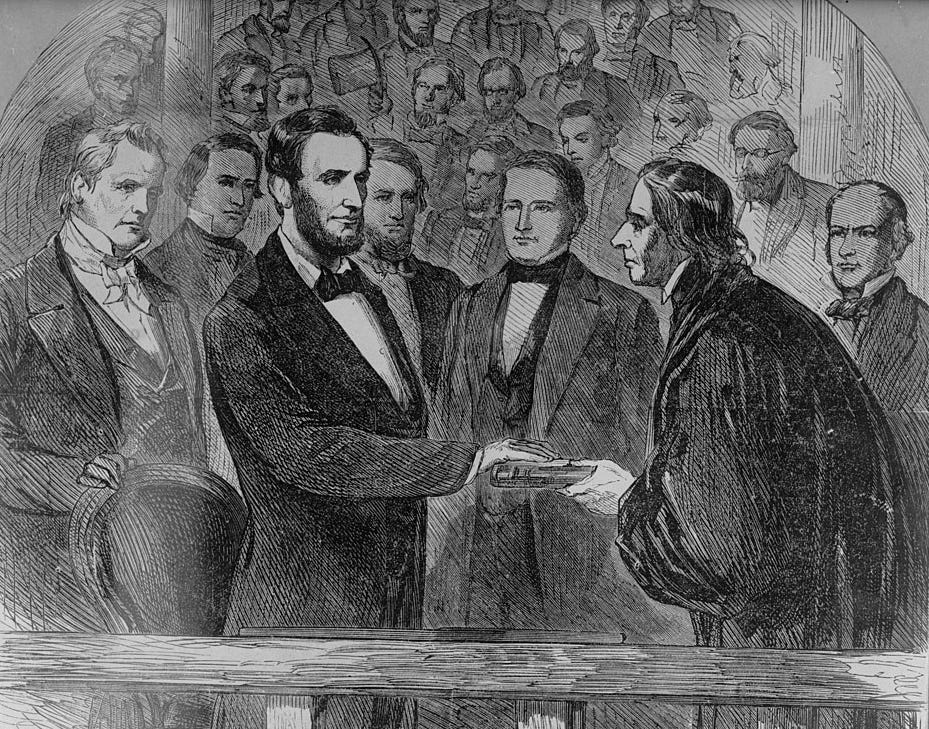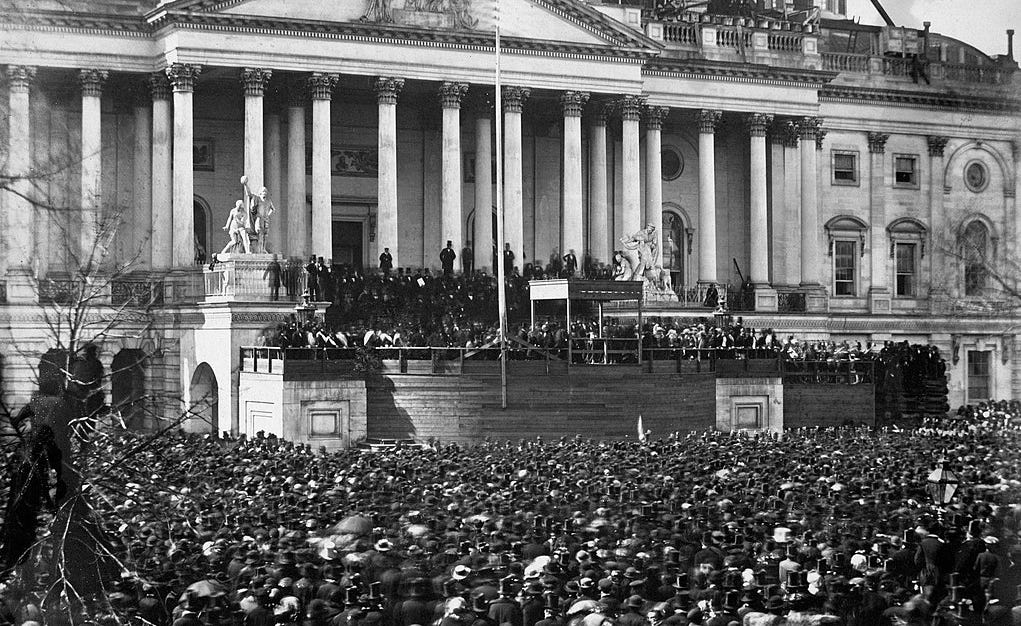At the President's inauguration, 1861
An eyewitness account from the brink of the Civil War
(Hello, this is Histories, a free weekly email exploring first-hand accounts from the corners of history… Do please share this with fellow history fans and subscribe!)
The public mind was distracted with the wildest apprehensions about the safety of the Capitol and even of the life of the President Elect…
This week’s presidential inauguration of Joe Biden isn’t the first to have the Capitol in a tense state. Abraham Lincoln’s first inauguration, on 4 March 1861, saw him accompanied by heavily armed infantry and cavalry, with the nation on the brink of civil war after the secession of seven southern slave states between his election and this occasion. There were already believed to be threats to his life. Little over a month later, America was indeed at war with itself.
Lincoln travelled by train from Springfield, Illinois via New York and Philadelphia to Washington D.C. A first-hand account of the inauguration has survived. It was written in the 1890s or thereabouts by William W. Averell (1832–1900), who was an army officer on sick leave at the time; he became a cavalry general in the Civil War that followed. Later in life he was a diplomat and the inventor of a type of asphalt.
Averell took himself to Washington “to show myself ready, in case of necessity, for any service that might be required”. Here is his account:
The public mind was distracted with the wildest apprehensions about the safety of the Capitol and even of the life of the President Elect who had arrived in Washington on the morning of the 23rd, after running an alleged gauntlet of conspiring assassins on the way. Washington was crowded with people very few of whom seemed wholly sane. Everyone was feverishly asking or imparting the latest news. Securing rooms on New York Avenue I visited some of the principle hotels which were thronged with excited men from every state North and South collected in groups discussing the crisis. There were no loud voices nor outcries. Intense brooding apprehension possessed all thinking men. Washington had a little [of] the aspect of Herculaneum listening for the throes of Vesuvius. Very soon I met several Army men one after another and confirming the proverb of misery’s love of company we gathered together and exchanged hopes and fears. The chiefest and last lingering hope among us was that no gun would be fired and that some miraculous thing would come out of the Peace Congress or the Crittenden proposition or from some source by which the terrible strain of the situation might be relieved. The next day several of us went as by a common despairing impulsive effort for comfort, to visit the tomb of Washington… The inauguration was at hand and the air was charged with alarming rumors of intended efforts to prevent it and to assassinate Mr. Lincoln. On the 1st of March I called on General Scott. Never was I so impressed with the personal grandeur of any man as I was with that of the old hero on that occasion… He received me graciously and after making particular inquiries about my health and strength he asked me many questions about the temper and sentiments of the Northern people as well as of the feelings and purposes of the Army officers whom I had recently seen. Regarding the inauguration he said “Mr. Lincoln will be inaugurated without any disturbance, every point is covered.” … One of my visits of obligation as well as of pleasure was to pay my respects to the wife of the President Elect at her hotel…
[The full transcription of Averell’s account of army life in the South-west of America can be found online thanks to the Newberry Library in Chicago.]


